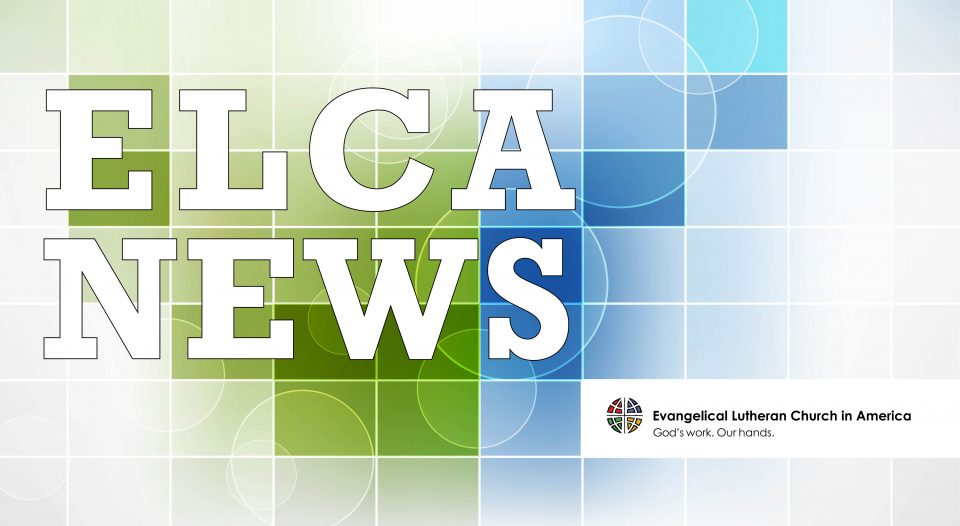The ELCA churchwide organization, as part of an interfaith coalition, called this April for lawmakers addressing climate change to include in their efforts faith communities and frontline communities facing climate-induced challenges.
“Climate change impacts all,” said Ruth Ivory-Moore, ELCA program director for environmental and corporate social responsibility. “Knowing that climate change impacts marginalized and vulnerable people the most, we must commit to actions that leave no one behind. In our efforts to protect God’s good creation, we cannot exclude voices, because doing so would only mirror and deepen existing racial, gender and economic inequalities.”
The coalition’s appeals were delivered at its “Faith and Frontline Call to Action: Good Trouble for Justice” event, held April 19 via Zoom, corresponding with the Biden administration-hosted Leaders Summit on Climate and following recent action by the United States to rejoin the Paris Agreement. One hundred and thirteen people attended the faith coalition’s virtual event.
Climate change is a pressing moral issue, event speakers argued. ELCA Presiding Bishop Elizabeth Eaton, in her 2021 Earth Day statement, said stewarding creation is a matter of faith. “Envisioning a world that is just, sustainable and resilient, we, as Lutherans, heed God’s call and take concrete steps to repair inequities and wealth divides locally, nationally and globally,” she said. “A framework built on hope and connecting climate to economic and racial justice is essential to our reimagining of communities as resilient and inclusive, void of poverty and leaving no one behind.”
The ELCA has outlined its commitment to environmental justice in its social statement Caring for Creation: Vision, Hope, and Justice, which is grounded in a biblical vision of God’s intention for the healing and wholeness of creation.
Underscoring the magnitude of the climate crisis facing the world, Ivory-Moore said, “In call, in study and in action, this is a watershed moment for us to lead with faith and hope regarding inclusivity, and to advocate for [environmental and other] policies that eradicate poverty and provide for resilient, economically viable communities.”
Event speakers covered topics such as climate-induced displacement and migration, climate-induced food insecurity and means of empowering and including frontline communities experiencing the adverse effects of climate change.
“Climate change is an impediment to food security in Uganda,” said Muhindo Jackson, resilience and climate change coordinator for Oxfam Uganda. He lamented the increasing temperatures and rising rains and floods in Uganda, which hit the country’s marginalized communities “first and worse.” Jackson called for developed countries to be more considerate in their policy and practices and provide funding to help at-risk communities adapt.
Just transitions to address climate change start with understanding and accompanying impacted frontline communities, said Colleen Swann, city administrator for Kivalina, Ala., an Inupiat village facing challenges due to climate-induced rising sea levels. Those offering to help, Swann added, must be culturally aware of the area before proposing measures for mitigation and adaptation.
“Envisioning a world that is just, sustainable and resilient, we, as Lutherans, heed God’s call and take concrete steps to repair inequities and wealth divides locally, nationally and globally.”
On the topic of climate-induced displacement and migration, Juan José Hurtado Paz y Paz, director of the Asociación Pop No’j of Guatemala, which is part of the ELCA’s AMMPARO (Accompanying Migrant Minors with Protection, Advocacy, Representation and Opportunities) network in Central America, stressed that Indigenous communities must be heard and should approve policy decisions.
While he acknowledged individual responsibility in the fight against climate change, such as mindful consumption and reducing waste, he noted that “governments and businessmen have the biggest responsibility. Policies and measures must be taken to control air pollution, promote other sources of energy, stop deforestation, promote sustainable transportation, and change the economic model. Indigenous people have knowledge and wisdom to offer the world to preserve the planet.”
Huda Alkaff, co-founder and director of Wisconsin Green Muslims, offered the closing prayer for the event. “[God], make us instruments of change to rid your creation of harm,” she said. “Pour your love into our hearts and fill us with compassion to answer the call of the climate change, displaced migrants and refugees and the most vulnerable population. Grant us clear thinking, right action and a gentle lifestyle.”
At the event’s conclusion, Jesse Young, senior advisor to the special presidential envoy on climate, offered greetings and thanked attendees for their work toward multilevel justice-focused environmental policies.
Members of the interfaith coalition included Baha’is of the United States, Center for Earth Ethics, ecoAmerica – Blessed Tomorrow, The Episcopal Church, Evangelical Lutheran Church in America, Lutheran Immigration and Refugee Service, National Religious Partnership for the Environment, NC Interfaith Power & Light, Oxfam America and Pacific Lutheran Theological Seminary.
In a follow-up email to event participants, Ivory-Moore wrote, “We continue to advocate for and to push for inclusivity at all levels. The faith community and frontline communities, with their diversity, expertise, insight and hope, must be included among stakeholder consultations on climate change issues and solutions as these matters are advanced.”
Learn more about ELCA Advocacy and take action at ELCA.org/advocacy.





